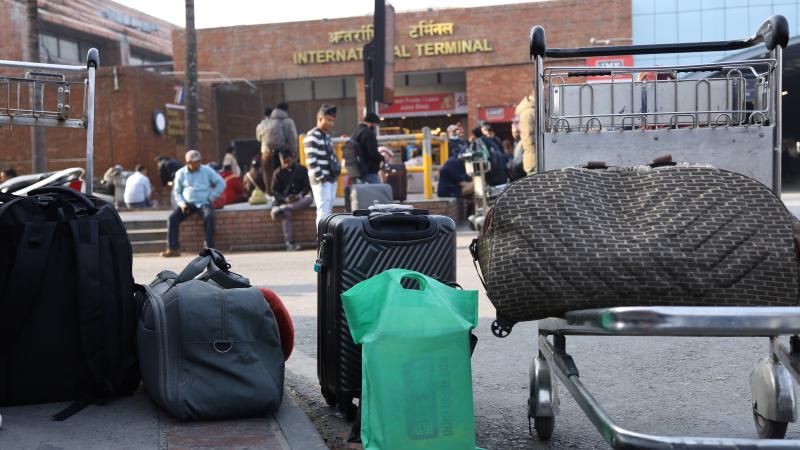Mexico, U.S. announce joint action to expand 'legal pathways' of entry to U.S.
The first centers will open in several countries, including Colombia and Guatemala. Foreign nationals will be able to make appointments using their phone to go to the centers before ever leaving for Mexico or the U.S.
President Andrés Manuel López Obrador and U.S. National Security Advisor Elizabeth Sherwood-Randall met Tuesday in Mexico City and announced a joint commitment to expand “legal pathways” of entry into the U.S.
Obrador said the countries were taking “additional measures to address the humanitarian situation caused by the unprecedented migratory flows on our shared border and in the region,” including “improving their efforts in Central America to address the root causes of migration and expand legal pathways” into the U.S.
The U.S. Departments of Homeland Security and State announced they were opening regional processing centers in “key locations throughout the Western Hemisphere to reduce irregular migration and facilitate safe, orderly, humane, and lawful pathways from the Americas.”
The first centers will open in several countries, including Colombia and Guatemala. Foreign nationals will be able to make appointments using their phone to go to the centers before ever leaving for Mexico or the U.S. Once there, an “immigration specialist” will interview them and if the specialist determines they are eligible, will process them “rapidly for lawful pathways to the United States, Canada, and Spain,” according to the new policy.
Obrador reaffirmed his commitment to the plan, saying, “In particular, Mexico and the United States will redouble their development efforts focused on people-to-people support.” Mexico also recognizes “the great potential value of the regional processing centers that the United States announced last week, and discussed how our country can contribute to their effectiveness,” he said.
He also praised the United States’ commitment to receive over “100,000 people from Honduras, Guatemala and El Salvador under the family reunification permit program that Secretary Mayorkas announced last week.”
Obrador said he and President Joe Biden are committed to expanding “legal pathways with consequences for irregular migration,” claiming they’ve already “achieved a 95 percent reduction in arrivals of undocumented people – of the nationalities included in the program – at our shared border.”
However, CBP data contradicts this claim, with nearly 270,000 apprehensions and gotaways reported at the southwest border alone in March. Likewise, thousands have already arrived in El Paso, prompting the city to declare a state of emergency ahead of the U.S. Title 42 public health authority ending May 11. Roughly 40,000 people are waiting in Mexico to initially enter El Paso, its mayor said, with more expected to follow.
Obrador also praised the Biden administration for continuing to accept “people from Cuba, Haiti, Nicaragua, and Venezuela under the humanitarian program. For its part, Mexico will continue to accept migrants back on humanitarian grounds.”
After halting construction of the U.S. border wall and canceling funding for CBP’s tethered aerostat radar system, a critical tool agents use to detect goataways, the Biden administration is financing expansion of one of Mexico’s ports of entry to “modernize” its shared border with Mexico.
The project is expected to be completed by the end of the year, Obrador said, which is “a step that will benefit the Mexican and U.S. economies.”














